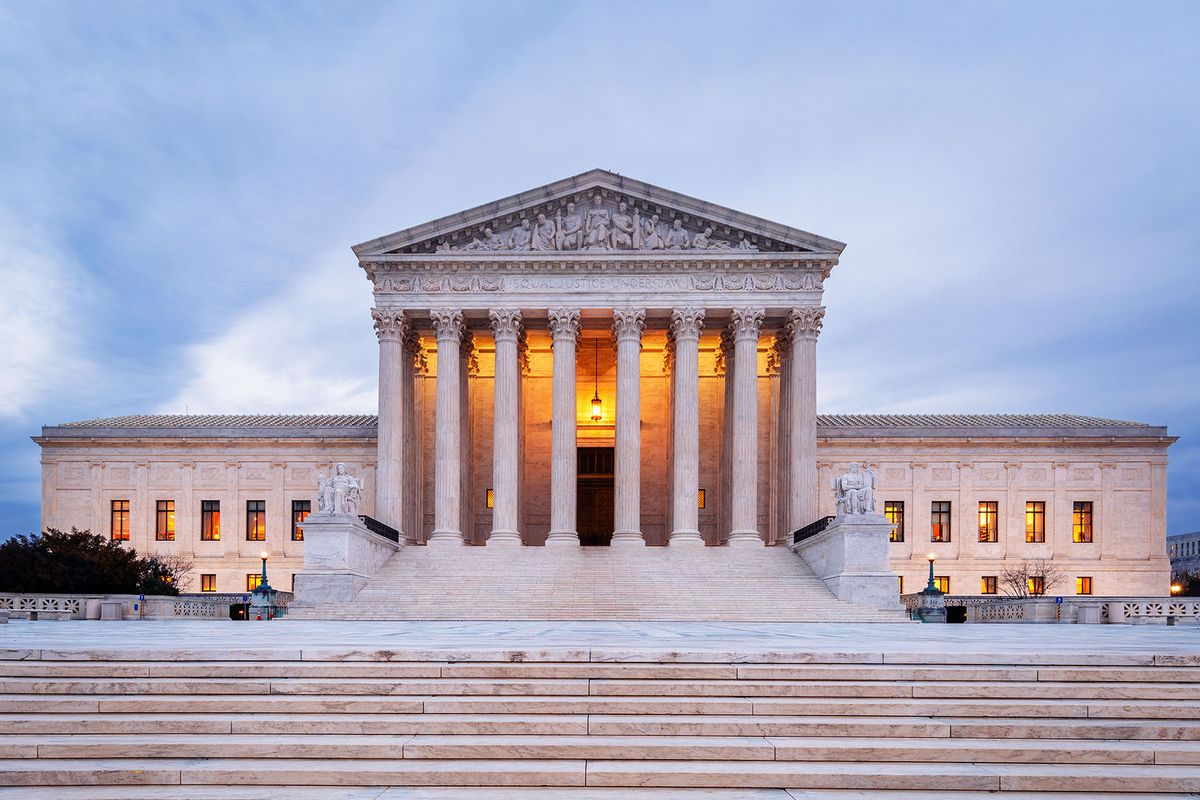Sign up for The Brief, The Texas Tribune’s daily newsletter that keeps readers up to speed on the most essential Texas news.
The U.S. Supreme Court on Monday will consider whether the First Amendment’s freedom of speech clause applies to social media companies’ content moderation. Their decision could render a Texas law unconstitutional.
The lawsuit challenges whether Texas and Florida can legally prohibit large social media companies from banning certain political posts or users. Both states passed laws in 2021 to stop what Republican state leaders considered “censorship” of conservative viewpoints.
The laws came on the heels of the Jan. 6, 2021 attack on the U.S. Capitol, which led Facebook, Twitter and other social media platforms to suspend former president Donald Trump’s social media accounts because his posts were thought to glorify violence.
Tech industry groups then brought a lawsuit in which they argued those laws are unconstitutional because they conflict with the First Amendment, which protects against government infringement of speech.
Tech trade groups NetChoice and Computer & Communications Industry Association sued Texas and Florida and asked a federal court to stop the laws from going into effect, claiming they illegally impede upon private companies ability to regulate the speech on their platforms. The justices put the Texas law on hold last year while the challenges moved through the court system.
The Supreme Court’s review of the laws represents the first major examination of if and how free-speech laws apply to social media companies. Legal experts say that the high court’s decision could have significant implications for statehouses across the country as they begin writing laws to address misinformation online.
“The stakes for free speech online are potentially enormous,” said Scott Wilkens, senior counsel at the Knight First Amendment Institute at Columbia University. “The court here is being presented with diametrically opposed interpretations of the law, and what the court does could, on the one hand, allow the government free rein to regulate social media platforms, or, on the other, prohibit the government from regulating them at all.”
The free speech provisions included in the First Amendment do not mean that private companies are forced to allow certain speech. Instead, the Constitution states that the government cannot compel or prohibit speech from private actors.
Wilkens said he believes the Court should take a middle ground and rule that while the platforms have a right to make editorial judgements, states can still regulate the platforms in ways that would promote democracy. For example, he said the platforms should be required to disclose how they curate their content.
Texas’ social media law, referred to as House Bill 20, would mandate that tech companies publicly disclose how they curate their content. The Supreme Court is not considering the legality of that portion of the law. They are focusing on other provisions of law, including its prohibition on social media companies with more than 50 million active monthly users from banning users based on their viewpoints. The court will also consider the law’s requirement that platforms produce regular reports of removed content and create a complaint system to allow users to raise flags about removed content.
Tech companies argue that giving the government any control over their content opens the door to a flood of misinformation that would be harmful to users.
“What could end up happening is that websites are flooded with lawful but awful content,” said Carl Szabo, vice president and general counsel at NetChoice, one of the groups suing Texas. “That renders our ability to access the information we want and not see the information we don’t want, impossible.”
Szabo said social media companies remove billions of pieces of content from their platforms each month, including sexually explicit material, spam, or other content that violates their terms of services.
Gov. Greg Abbott, who made the bill a priority during a special legislative session in 2021, said after the law was passed that it was intended to protect individuals’ freedom of speech.
“Allowing biased social media companies to cancel conservative speech erodes America's free speech foundations,” Andrew Mahaleris, a spokesperson for Abbott, said in a statement to The Texas Tribune. “Social media websites are a modern-day public square. They are a place for healthy debate where information should be able to flow freely — but there is a dangerous movement by social media companies to silence conservative viewpoints and ideas.”
Disclosure: Facebook has been a financial supporter of The Texas Tribune, a nonprofit, nonpartisan news organization that is funded in part by donations from members, foundations and corporate sponsors. Financial supporters play no role in the Tribune's journalism. Find a complete list of them here.
We can’t wait to welcome you to downtown Austin Sept. 5-7 for the 2024 Texas Tribune Festival! Join us at Texas’ breakout politics and policy event as we dig into the 2024 elections, state and national politics, the state of democracy, and so much more. When tickets go on sale this spring, Tribune members will save big. Donate to join or renew today.
This article originally appeared in The Texas Tribune at https://www.texastribune.org/2024/02/26/texas-social-media-law-supreme-court/.
The Texas Tribune is a member-supported, nonpartisan newsroom informing and engaging Texans on state politics and policy. Learn more at texastribune.org.



Shares